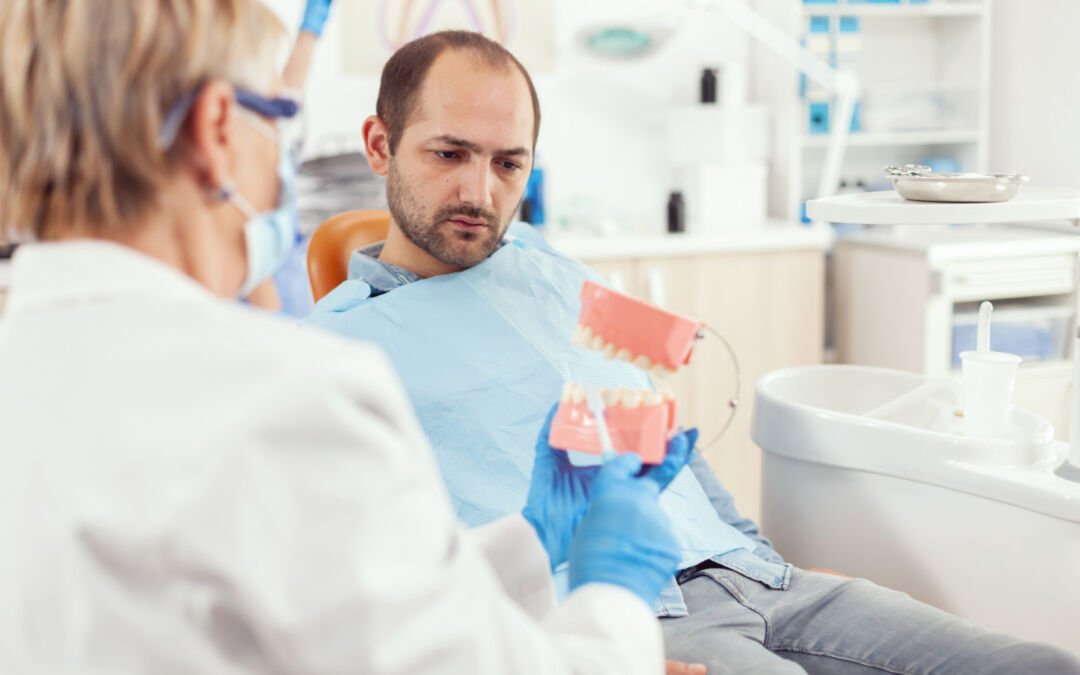Dental implants are a permanent tooth replacement option and if you have a missing tooth, a dental implant can restore the function and appearance of your smile. Dental implants look, act and feel just like your natural teeth but the process will take time as there are different stages.
The process includes:
- Pre-surgical appointments
- The surgery itself
- Recovery and follow-up
Not sure what to expect? This guide will tell you everything you need to know about dental implants!
Pre-Surgery
Your dentist will first have to determine if you are a suitable candidate for dental implants. They will need to examine your mouth and jawbone to determine if you have good general health and adequate oral health. You must have healthy gums and a strong jaw bone to support the implant.
Those with diabetes will need further examinations and those with immune deficiencies may not be eligible for this treatment because this will compromise your ability to heal.
Dental implants are built into your jaw and your jawbone must support them for the implants to function properly. Your bone must be thick enough to hold the implant over a long period of time and if this is not the case, bone grafting may be required and this involves transplanting bone tissue to strengthen it.
During your Dental Implant Surgery
You may need antibacterial mouthwash or some prescription antibiotics to lower the risk of infection after the procedure. You will also need someone to drop you off and take you home because the procedure always involves a local anesthetic at a minimum. Both oral and IV sedation are available and you must consider your pain threshold, teeth sensitivity, your gag reflex and the work needed to determine if you need a higher level of sedation.
Dental Implant Surgery Phases
An incision will be made in your gum to expose the bone once the local anesthesia kicks in. A drill is used to create space in the bone for the implant screw and the implant will go into place. Your incision will then receive a stitch or two.
You will then have to wait a few months to allow the implant and the bone to become one piece and once this heals, you will undergo the second phase of the procedure. Your provider will re-expose the implant through another incision and the dentist will place the abutment on the implant and take the impression needed to fit the crown. It will take several appointments to create the crowns and the final step involves receiving your new crown and you may receive a trial procedure before the final fit to ensure everything fits perfectly.
Dental Implant Recovery
Recovery time varies from one patient to another and most people will experience some bruising, swelling and pain after their surgery. A person who needed one tooth removed and replaced will have a shorter recovery time than someone who needed multiple implants and a bone graft.
Ibuprofen or Tylenol can help in most situations and your dentist will provide you with a list of post-operative instructions. You will need to eat soft foods for several days after your procedure and need to brush your teeth carefully. The use of ice packs and wet washcloths can also help with your swelling.
You will need several checkup procedures once you have your final appointment to place the crown.
In Conclusion
Dental implants require a multi-step process spanning months. Implants are surgically placed then fuse with the jawbone before abutments and customized crowns finalize the restoration. When cared for properly, implants offer patients a natural and long-lasting replacement for missing teeth through this innovative procedure.
Are you ready to restore and transform your smile? Dental implants may be the right answer and Dentistry in Newmarket can provide you with more information. We will provide you with more details regarding what you can expect from this surgery and will determine if you are a suitable candidate.
Contact us today to schedule a dental implant consultation!




Recent Comments